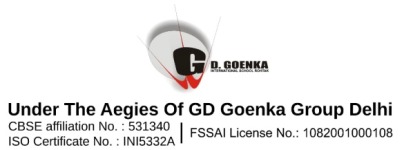In today’s ever-evolving job market, having a strong academic background is no longer sufficient to secure a successful career. Employers are now placing increasing importance on soft skills when evaluating potential candidates. These skills go beyond technical expertise and play a crucial role in determining an individual’s ability to adapt, collaborate, communicate effectively, and thrive in various professional environments. In this blog post, we will explore some of the key soft skills that students need to develop during their school years to prepare themselves for the future job landscape.
Communication Skills:
Effective communication is at the core of every successful professional interaction. Students at GD Goenka International School, Rohtak focus on enhancing both verbal and written communication skills to express ideas clearly, listen attentively, and engage in constructive dialogue with colleagues or clients.
Collaboration and Teamwork:
The ability to work well with others is highly valued by employers across industries. Students should learn how to collaborate efficiently within diverse teams, understand different perspectives, resolve conflicts amicably, and contribute positively towards common goals.
Adaptability and Flexibility:
As technology advances rapidly and industries undergo constant change, individuals must demonstrate adaptability and flexibility in order to stay relevant in their careers. Students should cultivate a mindset that embraces change while being open-minded towards new ideas or ways of doing things.
Problem-Solving Skills:
Problem-solving is an essential skill required in virtually all professions. By developing critical thinking abilities and analytical approaches during their school years, students can become adept at identifying challenges or obstacles within complex situations and finding innovative solutions.
Time Management:
Effective time management helps individuals prioritize tasks appropriately while meeting deadlines consistently. Students who excel at managing their time efficiently gain an advantage when transitioning into the workforce as it demonstrates discipline, organization skills, and reliability.
Emotional Intelligence (EQ):
Emotional intelligence refers to one’s ability to recognize emotions in oneself and others, and to respond in a thoughtful manner. Students should focus on developing self-awareness, empathy, and the capacity to manage emotions effectively, as these qualities contribute significantly to building positive work relationships.
Leadership Skills:
Even if not aspiring to be in managerial roles immediately after school, leadership skills are valued by employers at all levels. Students should aim to develop qualities such as decision-making, delegation, motivating others, and taking responsibility for their actions.
Adaptation to Technology:
In today’s digitally-driven world, proficiency with technology is no longer optional but rather a necessity. Students must stay updated with the latest technological advancements relevant to their field of interest and be willing to learn new tools or software as required.
As students transition from the Best Boarding School in India into the professional realm, it is imperative that they possess a strong set of soft skills alongside their academic qualifications. Employers increasingly seek individuals who can adapt quickly in an evolving work landscape while effectively collaborating with diverse teams. By focusing on developing essential soft skills like communication, collaboration, adaptability, problem-solving abilities, and emotional intelligence during their school years, students will be well-equipped for future job success.


